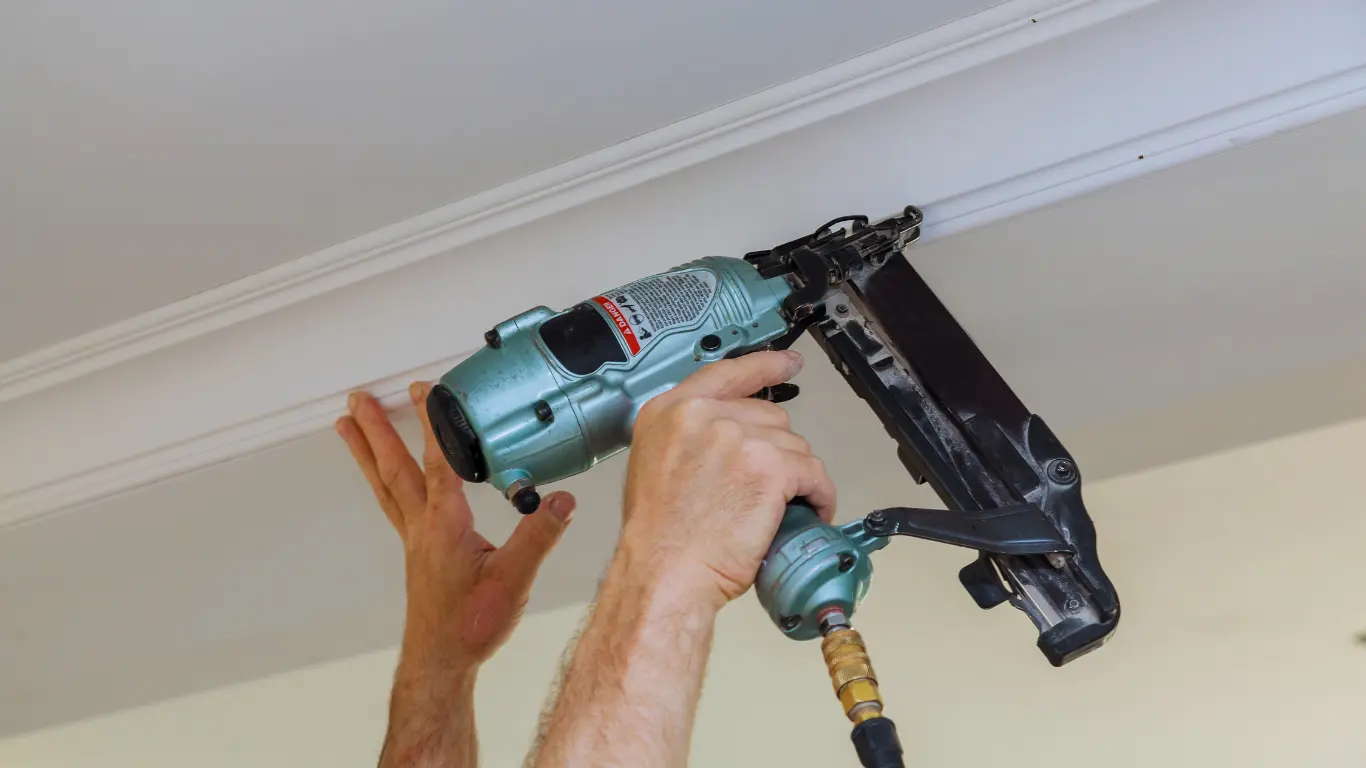When it comes to woodworking and DIY projects, choosing the right tools can make all the difference in the quality and longevity of your creations. Two popular contenders in the world of nail guns are the Brad Nailer vs the Finish Nailer. These tools are essential for securing materials together, but each has unique features catering to specific needs.
In this comprehensive guide, we’ll compare Brad nailer vs finish nailer, the strengths and differences of these two nailers to help you determine which one reigns as the more vital option for your projects.
Understanding the Basics
Before we dive into the strengths of the Brad Nailer and the Finish Nailer, let’s understand the fundamental differences between the two. Brad Nailers are known for using thin 18-gauge nails, ideal for delicate trim work and attaching thin pieces of wood. On the other hand, Finish Nailers employ slightly thicker 15-gauge or 16-gauge nails, making them more suitable for heavier trim and projects that demand stronger connections.
Strengths of the Brad Nailer
Brad Nailers’ distinct advantages make them the go-to choice for specific tasks. Due to their use of thin nails, they create smaller holes, minimizing the need for wood putty or touch-up work. Their narrow gauged nails are less likely to split delicate wood and are ideal for attaching thin moldings, delicate trims, and crafting projects. Brad Nailers are also lighter and more maneuverable, which can be a significant advantage during extended usage.
Strengths of the Finish Nailer

With their slightly thicker nails, Finish Nailers excel in applications where strength and durability are paramount. They are preferred for attaching more extensive moldings, baseboards, door casings, and other heavy-duty woodworking tasks. The increased nail size provides enhanced holding power, ensuring the materials stay securely fastened over time. This is particularly important for structural elements that will endure wear and tear.
When to Choose Brad Nailer
Opt for a Brad Nailer when precision and delicacy are crucial. These nailers shine when working with thin and delicate materials, preventing surface damage and ensuring a clean finish. Picture frames, lightweight trims, and decorative woodwork are areas where Brad Nailers showcase their strength.
When to Choose Finish Nailer
If your project demands resilience and robust attachment, the Finish Nailer is the weapon of choice. When tackling more extensive moldings, heavier trims, and carpentry tasks that require a steadfast connection, the Finish Nailer’s sturdier nails will deliver the required strength and longevity.
FAQs
1. What’s the primary difference between a Brad Nailer and a Finish Nailer?
The primary difference lies in the size of the nails they use. Brad Nailers use thinner 18-gauge nails, suitable for delicate trims and craftwork. Finish Nailers use thicker 15-gauge or 16-gauge nails designed for heavier moldings and carpentry projects.
2. Can I use a Brad Nailer for tasks that typically require a Finish Nailer?
While Brad Nailers are great for precision work, using them for heavy-duty tasks like attaching extensive moldings may not provide the necessary holding power. Finish Nailers’ thicker nails are better suited for such applications due to their enhanced strength.
3. Which nailer should I choose for attaching baseboards and door casings?
A Finish Nailer is the preferred choice for attaching baseboards and door casings; its thicker nails offer superior holding power, ensuring a robust and long-lasting attachment that can withstand these elements’ stresses.
Conclusion
The choice concerns your specific project requirements in the eternal debate between Brad Nailers and Finish Nailers. If finesse, precision, and lightweight maneuverability are what you seek, the Brad Nailer is your ally. On the other hand, when the task at hand demands unyielding strength, endurance, and a powerful grip, the Finish Nailer emerges as the superior contender. In the world of woodworking, no one-size-fits-all answer exists; it’s about selecting the tool that aligns with your project’s unique demands. So whether you’re crafting delicate art pieces or constructing robust furniture, remember to weigh the strengths of each nailer to ensure your creation stands strong, no matter the challenges it faces.

